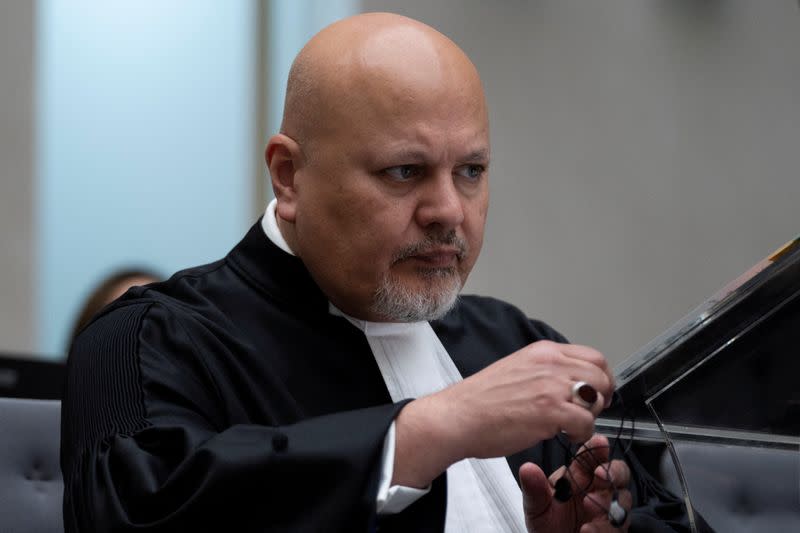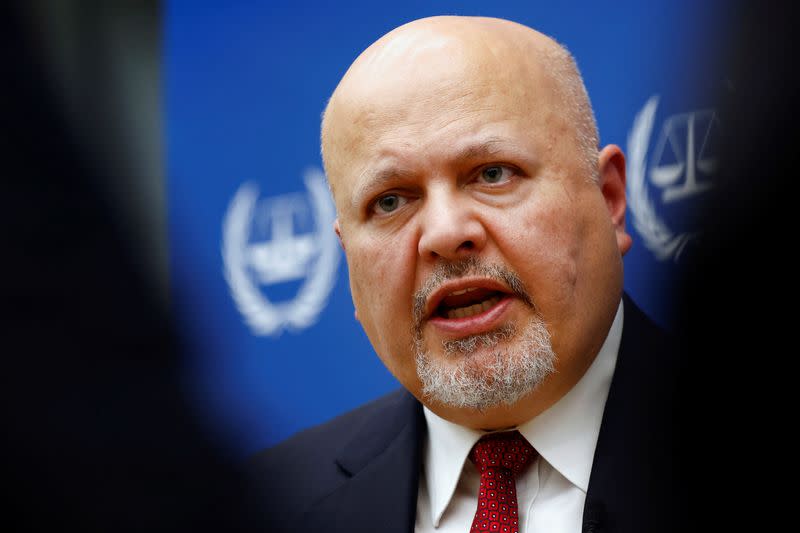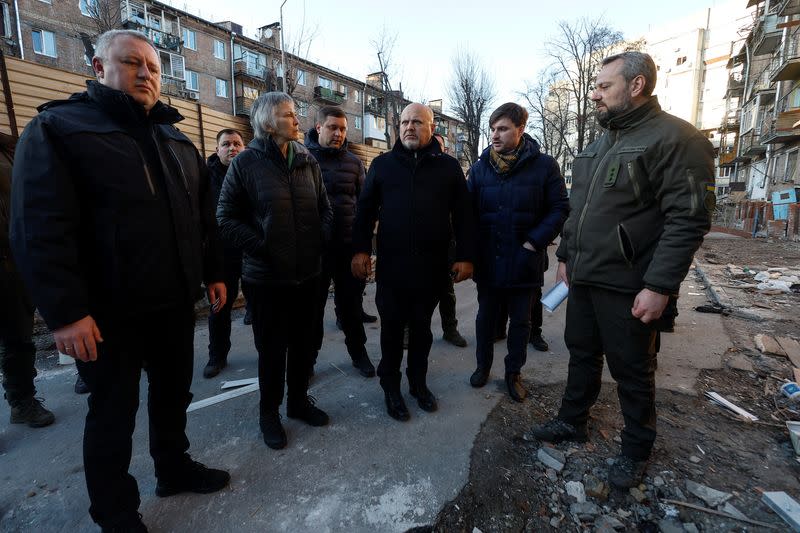ICC's Khan puts his office back on collision course with Washington
By Stephanie van den Berg
THE HAGUE (Reuters) - The British lawyer and prosecutor who helped end a U.S. policy against the International Criminal Court on Monday requested an arrest warrant for Israeli Prime Minister Benjamin Netanyahu, putting his office back on a collision course with Washington.
Karim Khan, who became chief prosecutor of the world's first permanent war crimes court in 2021, asked pre-trial judges to order the arrest of Netanyahu, Israeli Defense Minister Yoav Gallant and three top Hamas leaders.
Just months after being appointed to a nine-year term in The Hague, Khan shifted the ICC's investigation in Afghanistan away from U.S. forces to focus on the alleged crimes of the Taliban and local ISIS militants. The move drew criticism from human rights organisations and was seen by some as an attempt to win over Washington.
Opposition to the ICC came to a head during the administration of former President Donald Trump, when the United States sanctioned members of the court and blocked the bank accounts of Khan's predecessor.
In a sign of improved relations, the sanctions were dropped under President Joe Biden.
In June last year, the U.S. attorney general made the first ever visit to the ICC in the court's 22-year history. Merrick Garland met Khan and supported his investigation in the Russian-Ukraine war and the court's arrest warrant for Russian President Vladimir Putin.
But the improved relationship with the U.S. was set to take a turn for the worse on Monday after Khan went on CNN to announce his next legal step in the Israel-Gaza conflict.
U.S. President Joe Biden quickly slammed Khan's move to seek warrants for senior Israeli officials as "outrageous".
His top diplomat, Secretary of State Antony Blinken, called out Khan saying the prosecutor had been scheduled to visit Israel as early as next week to speak about cooperation with the court. Instead, the prosecutor went on a cable television to announce the charges, Blinken said.
"These and other circumstances call into question the legitimacy and credibility of this investigation," Blinken said.
Republican U.S. House Speaker Mike Johnson called Khan's decision to seek warrants "baseless and illegitimate".
DEFENDER OF WOMEN AND CHILDREN
Khan, a 54-year-old barrister, made his name as an international defence attorney. He was seen as an ICC outsider who was appointed to the top job in a vote by the court's member states after intense political jostling.
Khan and his office have been under intense scrutiny for his investigation of the Israel-Hamas conflict, with political pressure promoting a rare public statement earlier this month.
Khan said all attempts to impede, intimidate or improperly influence ICC officials must cease immediately.
Khan has traveled frequently to countries where the ICC is investigating. He became the first ICC prosecutor to visit an active war zone when he visited Ukraine in March of 2021.
In December, Khan also made a high profile visit to Israel and the occupied Palestinian territories on the West Bank, also the first ever trip of its kind by an ICC prosecutor.
A graduate of King's College in London, Khan has stressed his dedication to going after perpetrators of sexual crimes and defending the rights of children.
He identified himself as a member of the minority Ahmadiyya Muslim Community from Pakistan and has quoted the Quran, the Muslim holy book, in several ICC statements.
In a legal career of more than three decades, Khan has worked for almost every international criminal tribunal in roles in prosecution, defence and as counsel for victims.
Khan started his international law career as a legal advisor for the office of the prosecutor for the United Nations ad hoc war crimes tribunal for both the former Yugoslavia and Rwanda between 1997 and 2001.
His first turn in the limelight was as the lead defence attorney for former Liberian president Charles Taylor who was on trial for war crimes before the Special Court for Sierra Leone, seated in The Hague for the Taylor trial.
On the opening day of the trial in 2007 Khan dramatically walked out of the courtroom against judges' orders after announcing Charles Taylor had fired him.
Khan subsequently worked on ICC cases on Kenya, Sudan and Libya before being appointed in 2018 as the head of Unitad, UNITAD, the U.N. team investigating Islamic State crimes in Iraq.
(Reporting by Stephanie van den Berg and Anthony Deutsch; Editing by Alistair Bell)




